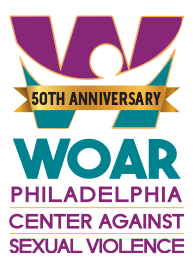Sexual Assault
Sexual assault is any type of sexual contact or behavior that occurs without the consent of the other person, which includes any sexual contact with an individual who cannot legally consent to sexual contact at the time of the occurrence.
Sexual assault includes but is not limited to rape, attempted rape, and unwanted touching, fondling, and kissing. A person may engage in sexual assault through the use of force, threats, manipulation, or coercion to commit sexual assault.
Sexual assault can happen in many different situations: between two people who know each other (like a current or past partner), between two people who don’t know each other well, or between someone and a child. Sexual assault can also occur, even if the victim was not physically forced or threatened with violence.
It is important to understand that sexual assault is NEVER the fault of the survivor. Sexual assault is always an act of power and control by the perpetrator, intended to harm and humiliate the victim.
If you or someone you know has experienced sexual assault, it is important to get help right away. Reach out to a trusted friend or family member for support, contact your local police department, or call WOAR’s rape crisis hotline at 215-985-3333.
How to Know if You’re Seeing Sexual Assault
How to know if you are seeing sexual assault happening – Sexual assault includes but is not limited to rape, attempted rape, and unwanted touching, fondling, and kissing. Sexual assault is a crime, and it is any type of sexual contact or behavior that occurs without the consent of the other person. Sexual assault can happen to anyone regardless of gender, age, race, religion, or socioeconomic status.
If you are concerned that someone you know may be in an unsafe situation involving sexual assault, there are some warning signs to look out for. These include may include:
- Unexplained physical injuries
- Sexual behaviors that seem out of character for the person
- Withdrawal from activities, friends, and family
- Feelings of guilt or shame
- Trouble sleeping or frequent nightmares
- Flashbacks or intrusive memories
- Sexual harassment by another person
If you see any of these warning signs or suspect that someone is a victim of sexual assault, it is important to speak up and offer help. You can:
- Listen without judging
- Encourage them to seek professional help from a counselor or other mental health provider.
- Provide information about support services and other resources in their area.
- Offer ongoing guidance, advice, and emotional support.
- Help them find a safe place to stay if necessary
- Encourage them to report the incident to authorities if they feel comfortable doing so.
It is important for everyone to be aware of the signs and symptoms of sexual assault, as well as how to recognize them and what to do if you see it happening.
Is Sexual Assault A Crime?
Sexual assault is a serious crime that should not be taken lightly and those who experience it deserve support and understanding. Sexual assault is any type of sexual contact or behavior that happens without the consent of the person being touched. This can include rape, attempted rape, unwanted touching, groping, fondling, and/or forced sexual acts. Sexual assault can happen to anyone regardless of their gender, age, race, or ethnicity.
It’s important to remember that sexual assault is never the victim’s fault. Sexual assault is a crime no matter where it takes place, whether in public or private. In most states and countries, it is illegal to commit any type of sexual act without the clear consent of all involved parties. If you see someone engaging in non-consensual sexual activity, it is important to step in and help the victim.
What to Do if You See Sexual Assault Happening
If you see sexual assault happening, it is important that you act quickly and safely. The best thing to do is to call 911 and report the incident. Give as much information as possible, including the location, description of the people involved, and any other relevant details.
If you cannot call for help, try to get the victim away from the situation and offer emotional support. Let them know that it is not their fault and contact the police or other authorities right away. You can also reach out to a friend or family member for support in the moment. It can be difficult to witness sexual assault taking place but remember that speaking up can help save someone’s life. Sexual assault is a crime and perpetrators should be held accountable for their actions.
By understanding what sexual assault is and how to respond if you are ever in an unsafe situation, you can help protect yourself and others from experiencing this devastating form of violence. Being aware of warning signs may help you stay safe. Sexual assault is never the fault of the victim, and it is important to remember that help is always available.
Bystanders can also make a big difference in stopping sexual assault before it starts. If you witness someone exhibiting warning signs of potential sexual assault, such as inappropriate comments or physical contact, intervene if appropriate. Speak up for yourself and others by directly speaking out against abusive behavior or getting help from a trusted adult. If a friend confides in you about an experience with sexual violence, listen without judgment and remind them that what happened was not their fault. Offer emotional support and connect them with resources at WOAR (Call 215-985-3333) for additional guidance and support. More resources can be found at PCAR Pennsylvania Coalition to Advance Respect, RAINN (Rape, Abuse & Incest National Network), and National Sexual Violence Resource Center.
But What if I am Afraid?
It is completely understandable to feel scared or uncertain about what to do in these situations. It is important to remember that your safety always comes first. If you are afraid of creating a distraction and drawing attention to yourself, you can always call 911 to get help from law enforcement.
Or if you are unsure about what you are seeing, or do not want to involve the police, you can enlist the help of others, especially people who are in a position of leadership or are in a helping profession.
These might include:
- Managers (if at work)
- Human Resources (if at work)
- Bouncers or Bartenders
- Security Guards who are nearby
- City Workers
- Fire Fighters (on or off duty)
- Teachers (if at school)
- School Security (if at school)
Remember, you don’t have to be a hero to help. There are many reasons people do not get physically involved in an ongoing sexual assault, not least of which is you could become a victim of violence yourself. Sometimes the best thing you can do is to get some safe distance between yourself and the offender and do your best to get help from people who are more qualified to lend physical aid.
Sexual assault is a serious crime, and the perpetrators should be held accountable for their actions. By understanding what constitutes sexual assault and responding appropriately if you witness an incident, you can help protect yourself and others from experiencing this form of violence. Sexual assault is never the victim’s fault, so it is important to remember that help is always available.
If you or someone you know has experienced sexual assault, please seek help and support as soon as possible. You are not alone. There are many resources available to provide guidance and support throughout this difficult process.
If you or someone you know has experienced sexual assault, it is important to get help right away. Reach out to a trusted friend or family member for support, call the Philadelphia rape crisis hotline at WOAR 215-985-3333, or contact your local police.





